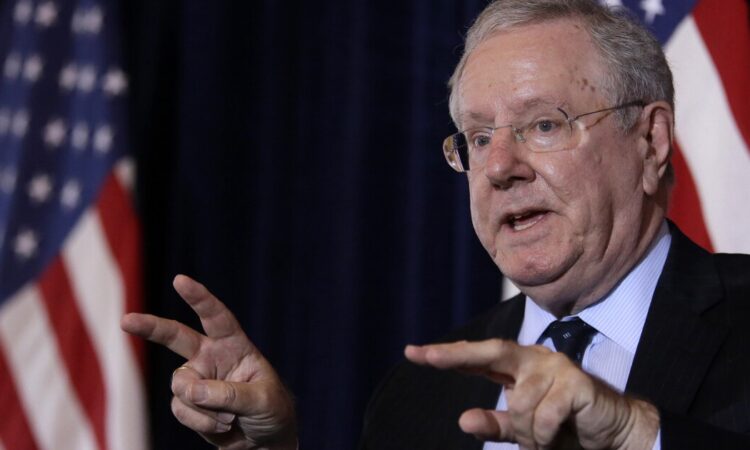
The Heritage Foundation just gave the U.S. its
worst
Index of Economic Freedom rating since the index was first published in 1995. According to the latest report, as many as 16 European countries are now considered more economically free than the U.S. So, what has gone wrong in the
U.S.
in recent years, and what needs to change?
I recently met up with
Steve Forbes
, and we talked about this issue. Forbes mentioned two factors that have caused the diminution of economic freedom in the U.S. “One is the rise of modern socialism,” he said. “Rather than the old idea of government ownership of companies and industries, modern socialists achieve control through expanding the regulatory state. Regulators more and more tell you what you can and cannot do.”
The reach of the regulatory state has increased enormously this century. Former President Donald Trump lowered taxes and rolled back some regulations, but President Joe Biden has not only undone what Trump did but increased the reach of the regulatory state to unprecedented heights, says Forbes.
The latest example is the
proposed rules
concerning electric vehicles. By coercion, the government wants to destroy the use of the internal combustion engine and make the auto industry a virtual ward of the government. And Europe is even further down this road. The European Union has banned the registration of new cars with combustion engines from 2035. “These proposed bans in Europe and now the U.S. are indeed part and parcel of a planned, modern socialist economy,” says Forbes.
The second factor that has caused the diminution of economic freedom in the U.S., according to Forbes, is one absolutely ignored by policymakers and pundits: the devaluation of the dollar. The Bush administration in the early 2000s had a deliberate but unstated policy of weakening the dollar. Commodity prices soared, and so did housing prices. The result was the crisis of 2008, which, of course, was blamed on free markets rather than government errors.
As Forbes explains, this disaster was followed by the Federal Reserve and other central banks suppressing interest rates and then printing too much money during the COVID-19 crisis. The antidotes are simple: cut tax rates, stabilize the dollar, and deregulate. “The Supreme Court has been making — and will be making — decisions that will aid in the battle against the administrative state,” Forbes says.
Another problem is government debt, which in the U.S. is growing more and more each decade — and which is one reason for the Heritage Foundation’s poor rating. “The only realistic way to deal with the government’s growing financial crisis is to create conditions for a booming economy: tax rate cuts, spending restraint, deregulation, and a stable dollar,” says Forbes.
Inflation has been running rampant around the world lately. According to Forbes, the recent rise in prices is the result of serious disruptions from COVID lockdowns and governments undermining the value of their currencies. “Unfortunately, the Federal Reserve and other central banks think you fight inflation by depressing economies and making people poorer. This is similar to what physicians did to patients over two centuries ago; they bled them!”
But there is also positive news. Although economic freedom has declined in the U.S., a majority of Americans are still clearly in favor of capitalism. For my book In Defense of Capitalism, I commissioned Ipsos MORI to conduct a survey in 34 countries. In only one country (Poland) were attitudes toward capitalism more positive than in the U.S. Forbes comments: “So there is still reason for hope, but we need to be more assertive in defending the idea of capitalism.”
CLICK HERE TO READ MORE FROM RESTORING AMERICA
Rainer Zitelmann is the author of the book
In Defense of Capitalism
, which Steve Forbes described as “one of the most important books in decades defending capitalism … Adam Smith would have been impressed — and proud.”






